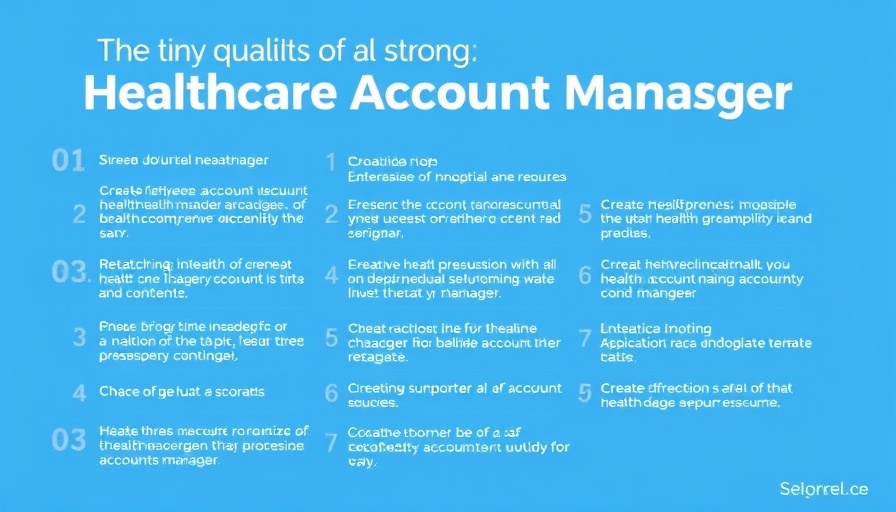
Understanding the Healthcare BPO Landscape
Healthcare Business Process Outsourcing (BPO) presents a complex yet rewarding opportunity for organizations striving for efficiency. Account managers play an essential role in this landscape, serving as the bridges between healthcare providers, payers, and the BPO companies. Their expertise goes beyond mere management—it involves an intricate understanding of healthcare regulations, technology integration, and strategic account development.
The Crucial Role of Account Managers in Healthcare BPO
In the context of healthcare BPO, account managers are vital to ensuring that client needs are met and service delivery is optimized. They are responsible for maintaining strong relationships, ensuring compliance with healthcare regulations, and leveraging data analytics to track performance and enhance client engagement. Effective communication skills and a deep understanding of healthcare processes are essential for these professionals.
Leveraging Technology for Enhanced Client Management
Within the digital healthcare space, adept account managers leverage various digital marketing tools and CRM systems to enhance their service delivery. These technological advancements enable them to consolidate data, automate communications, and streamline workflows—all contributing to improved client satisfaction. Tools like Google Analytics can be instrumental in measuring campaign performance and optimizing strategy based on user interaction and engagement.
Future Trends in Healthcare BPO
The future of healthcare BPO is increasingly intertwined with digital transformation. As the healthcare landscape evolves, so too must the strategies employed by account managers. Key areas for growth include artificial intelligence in patient management and predictive analytics for patient engagement. By harnessing these technologies, account managers not only enhance service offerings but also ensure responsiveness to client and patient needs.
The Impact of Regulatory Changes
Staying abreast of regulatory changes is critical for healthcare account managers. The healthcare BPO space is heavily regulated, and a failure to comply with these regulations can lead to significant legal repercussions for both BPO providers and their clients. A proactive approach to understanding current regulations, such as HIPAA compliance, ensures that account managers can mitigate risks and deliver value within legal parameters.
Important Skills and Strategies for Successful Account Management
Successful account managers in the healthcare BPO industry must hone a variety of skills, including project management, negotiation, and analytical thinking. Moreover, adopting digital marketing strategies—focusing on SEO optimization and data-driven decision-making—can significantly enhance their effectiveness. By understanding patient journeys and employing local SEO best practices, they can tailor services that resonate with clients and patients alike.
Case Studies: Effective Account Management in Action
Examining case studies of successful healthcare BPO account management sheds light on best practices. For instance, companies that integrated a robust marketing automation workflow not only improved client communication but also boosted internal efficiency, reflecting higher ROI. Accounts that adopted omnichannel marketing strategies reported enhanced patient engagement and satisfaction rates.
Conclusion: Embracing the Future of Healthcare BPO
As healthcare organizations continue to outsource key functions, the role of account managers will become increasingly pivotal in navigating this landscape. Their ability to manage accounts effectively while incorporating innovative marketing strategies will define the success of healthcare BPO services. For professionals in the field, embracing technology and deepening their understanding of healthcare-specific needs will be essential for thriving in a competitive market.
 Add Row
Add Row  Add
Add 




Write A Comment